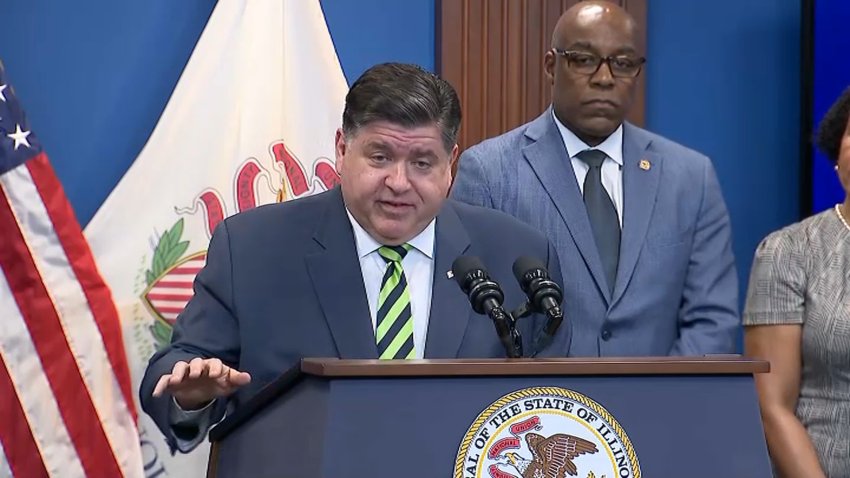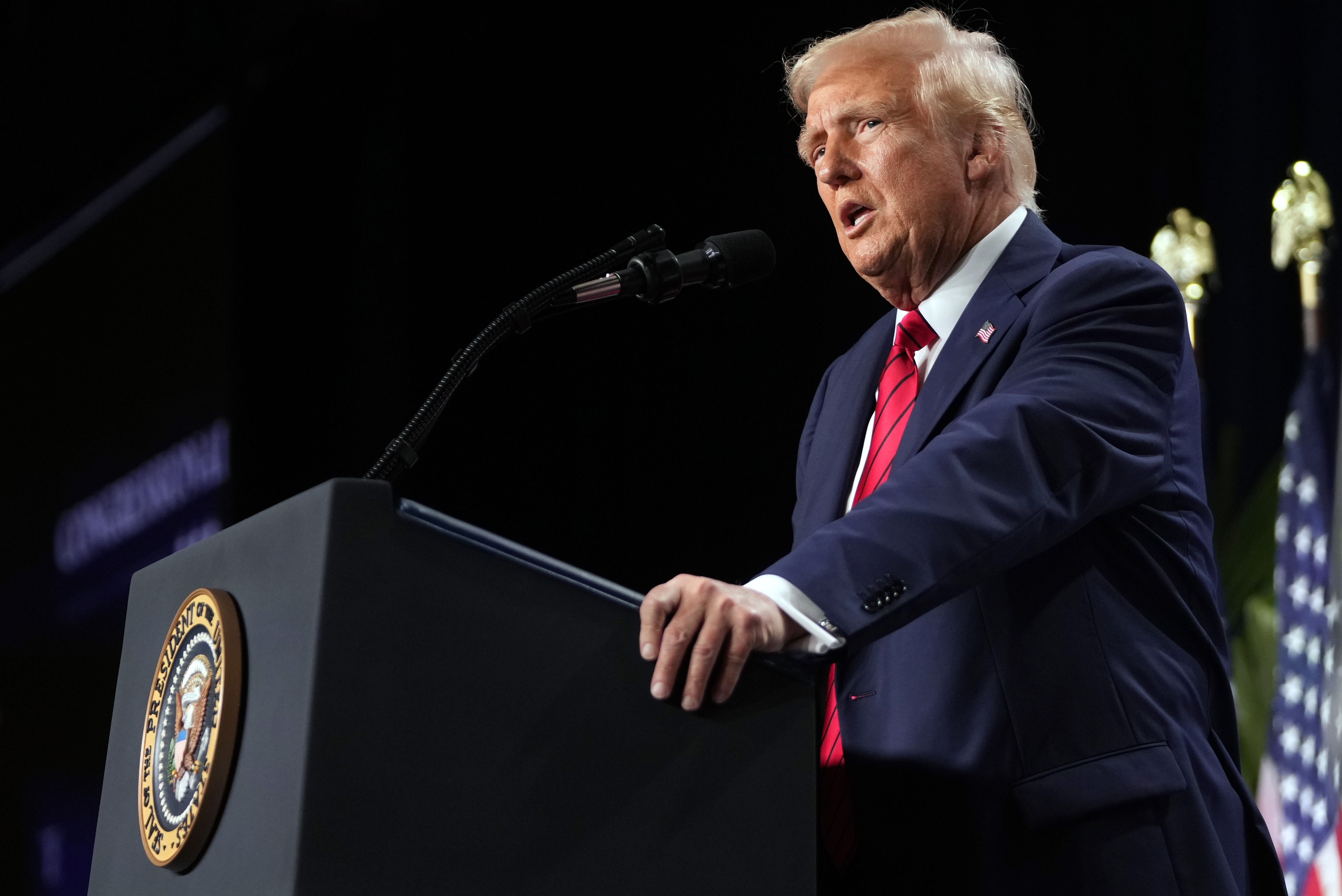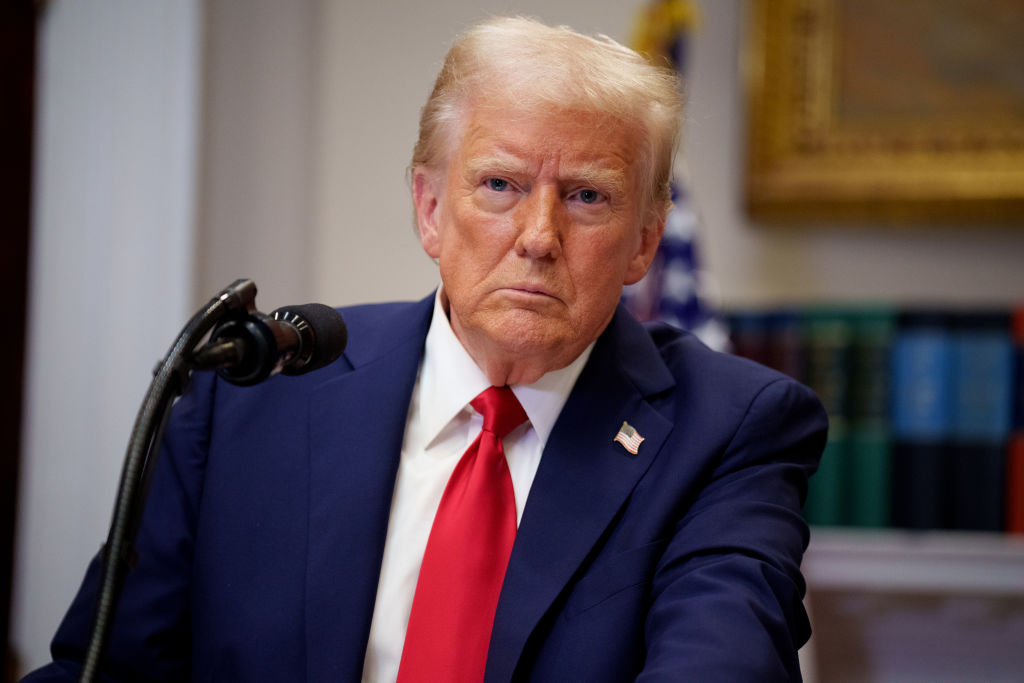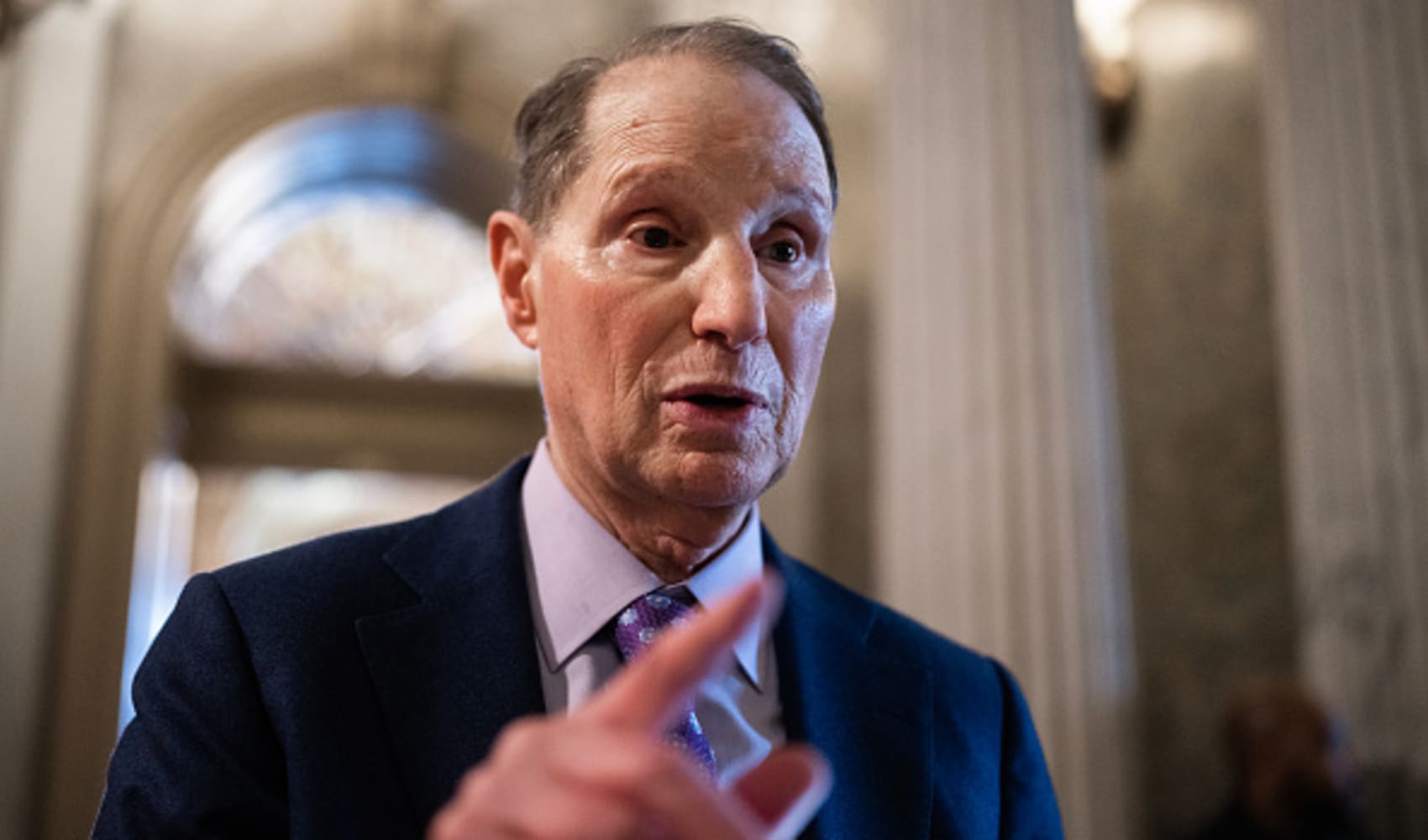You’re watching the NBC 5 Chicago News streaming channel, which plays local Chicago news 24 hours a day, seven days a week. You can find the “NBC 5 Chicago News” streaming channel on your phone or computer, and on Peacock, Samsung, Roku, Xumo or on our app, so you can watch our local news on your schedule.
Update at 12:25 p.m. Wednesday: President Donald Trump's administration on Wednesday rescinded a memo that attempted to freeze federal aid spending just one day after it was issued. Our latest story can be found here. Our original story continues below.
A directive by President Donald Trump to freeze federal grants and loans raised uncertainty and fears among many who depend on federal aid before a judge intervened Tuesday to temporarily block it from taking effect.
Trump’s administration said the freeze would not affect federal assistance to individuals, such as Social Security, Medicare, food stamps, student loans and scholarships. But it said a pause is necessary to ensure funding for other programs complies with Trump’s executive orders, which aim to reverse progressive policies on transgender rights, environmental justice and diversity, equity and inclusion.
Illinois Governor J.B. Pritzker address the media Tuesday afternoon.
“What the President is trying to do is illegal," Pritzker said. "I know these are challenging times, and the Trump administration is trying to confuse the American people. That's why it's so important that we speak plainly.”
A federal judge blocked the directive just minutes before it was to kick in Tuesday. The order placed it on hold until next Monday while legal wrangling continues.
As more information about the freeze continues to unfold, here's where things stand right now, and what services could be impacted.

Is Medicaid impacted?
A massive outage in Medicaid portal systems on Tuesday left officials in all 50 states unable to access programs required for reimbursement for payments into the system, and while the Trump administration said the funding freeze did not impact those payments, Pritzker expressed doubt about their denials.
Feeling out of the loop? We'll catch you up on the Chicago news you need to know. Sign up for the weekly Chicago Catch-Up newsletter.
"Their intention was not to pull it back online today," he said. "You think it was an accident the memo came out last night, and today our state agencies couldn’t access those systems? It’s not. The intention is to disrupt."
The governor said there was "no communication" with states about what programs would be targeted and which would be spared by the funding freeze, leading to a mad scramble of activity as agencies and organizations tried to figure out whether they would be impacted.
"When our agencies reached out to the federal agencies, we literally were informed that they are not to speak with us," he said.
White House spokesperson Karoline Leavitt said she expected systems to "be back online shortly" without any effect on payments.
States on average receive about 30% of their revenues from the federal government, according to Federal Funds Information for States, a nonprofit that analyzes the affect of federal actions on states. Although the federal government has rescinded unspent funds in the past, it hasn’t normally halted grants on the front-end, said Marcia Howard, executive director of Federal Funds Information for States.
The grant pause is perhaps most similar to a federal government shutdown, when a congressional impasse on spending legislation delays federal payments for some state and local services. In most of those circumstances, a couple weeks delay “isn’t hugely disruptive,” Howard said.
But some state officials are nonetheless anxious.
“If the federal government coughs, Maryland catches pneumonia,” state Senate President Bill Ferguson said Tuesday, while discussing how the grant freeze could affect the state.
Higher education faces uncertainty
Universities around the country are scrambling to determine how a funding freeze could affect their research programs, students and faculty.
University of North Carolina administrators sent a campus email urging patience until decisions can be confirmed directly from federal agencies.
“The messaging is, ‘Try not to panic, and sit tight,’” said psychology professor Keely Muscatell. “But I also think it’s a lot easier said than done.”
A University of Florida memo obtained by the Associated Press indicates that the university is advising faculty to continue grant-related activities unless they have been specially told that the research has been suspended.
But at Gallaudet University in Washington, D.C., researchers said they were told to stop work on grant-funded projects. If the funding freeze goes forward, scientists may miss deadlines to present and share their work, said researcher Lorna Quandt, who has a grant application pending to fund interpreters to accompany deaf students to an upcoming conference.
The Association of Public and Land-Grant Universities said a freeze would “sideline world-leading American scientists who are working toward cures for cancer, developing breakthroughs in AI and quantum computing, driving progress in advanced manufacturing, and supporting American farmers.”
Road funding may keep rolling
For many highway projects that are partially funded by federal grants, states pay the contractors directly then seek reimbursement from the federal government. There initially was widespread concern among state transportation leaders that states “would be left holding the bag,” but further clarification from the White House calmed some nerves, said Jim Tymon, executive director of the American Association of State Highway and Transportation Officials.
Although some grants, particularly those awarded at the discretion of the federal government, could still be at risk, Tymon said he is now confident the Trump administration isn’t targeting the formula-based grants that states use to set their own transportation priorities and pay for roads.
“We’re not as panicked as maybe we had been,” he said.
Early childhood providers raise fears
Some operators of federally funded Head Start centers, which work with 800,000 kids and low-income families nationwide, initially were concerned that the freeze could mean closing their doors as soon Wednesday. Operators logged on to a website where they typically draw down their federal grants and discovered they no longer had access to the money, which they need to pay their employees and vendors.
“Is it a short-term thing? Is this a glitch? Is it a long-term thing? All of those things, we just really don’t know at this point,” said Tommy Sheridan, deputy director of the National Head Start Association. “That’s really adding to the fear and the concern.”
Nonprofit groups launch a challenge
A coalition of nonprofit groups filed a lawsuit Tuesday against the funding freeze. The nonprofit Democracy Forward, a public interest litigation group, wrote that the White House’s memo fails to explain its legal authority “to gut every grant program in the federal government.”
The National Science Foundation postponed this week’s grant review panels and is pausing the distribution of new or existing awards.
The National Crime Victim Law Institute described the Trump administration action as a “devastating blow” to nonprofits such as the institute.
“These grants are the backbone of critical programs for those in need across this country,” executive director Meg Garvin said. “Without this funding, nonprofits face the heartbreaking reality of scaling back services, cutting essential programs, and, in some cases, closing their doors entirely.”
Tribal groups could be affected
Tribal nations, “more so than almost any other community, will be negatively impacted” by a freeze on federal funding, said John Echohawk, executive director of the Native American Rights Fund. He said tribal nations rely on federal funding for public safety, healthcare, education, infrastructure “and the basic needs of our most vulnerable citizens.”
“The United States must fulfill its trust obligation to protect Tribal treaty rights, lands, assets, and resources,” he said.
Other services could see delays
North Carolina Gov. Josh Stein said on X he is “concerned that freezing federal funding will hurt North Carolinians, especially those recovering” from Hurricane Helene in western North Carolina. Stein, a Democrat, said he is seeking clarity from federal officials and working to ensure people in the storm-affected areas get the support they need.
The federal government also supports state programs that fund billions of dollars in drinking water and sewage infrastructure. Money the federal government already sent out could probably be used, but the pause calls into question new spending, said Alan Roberson, executive director of the Association of State Drinking Water Administrators.
The Biden administration had stipulated that some of those funds go to disadvantaged communities, a term tied to its environmental justice efforts that the Trump administration has targeted for elimination. The fate of that effort “is to be determined, and we recognize that,” Roberson said.




